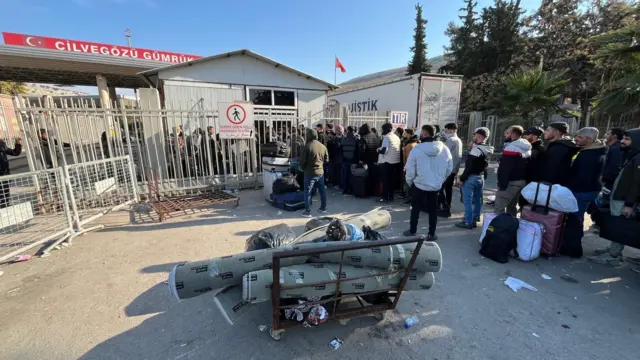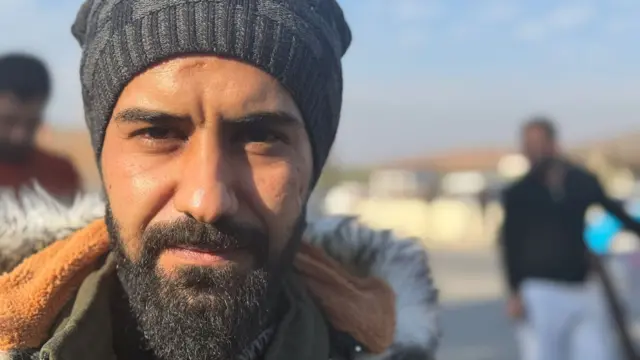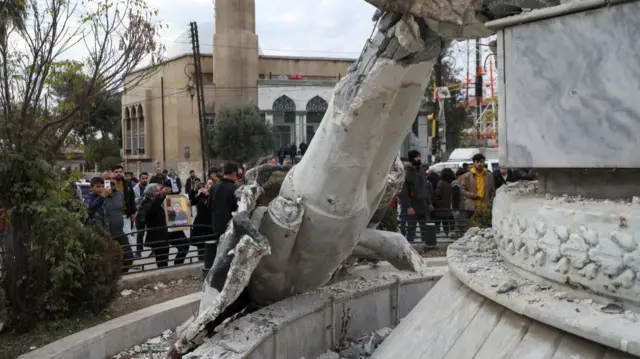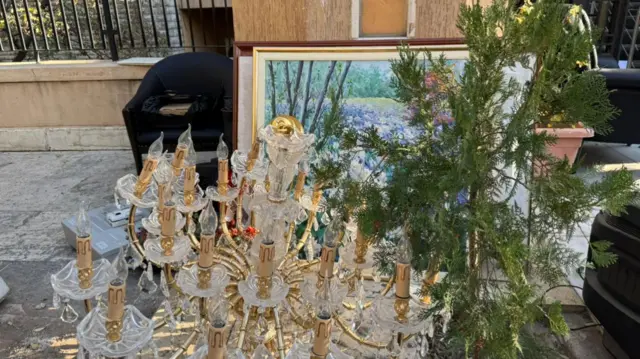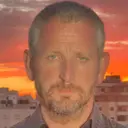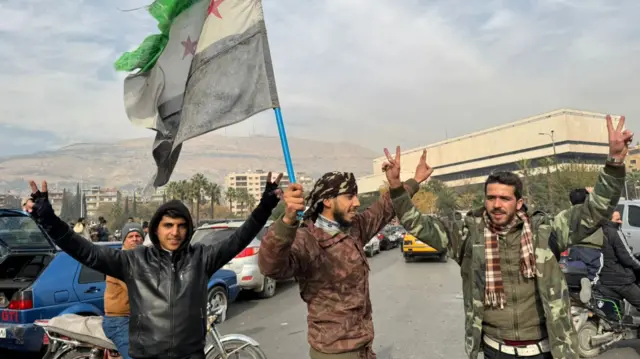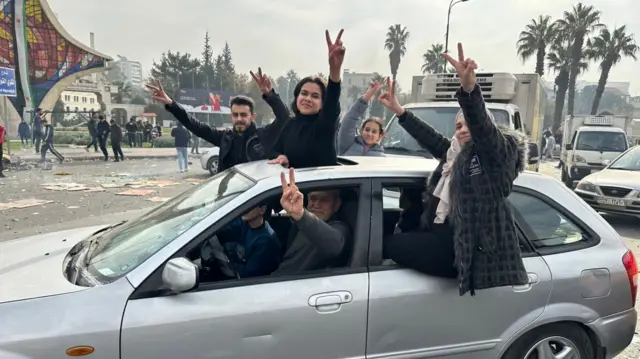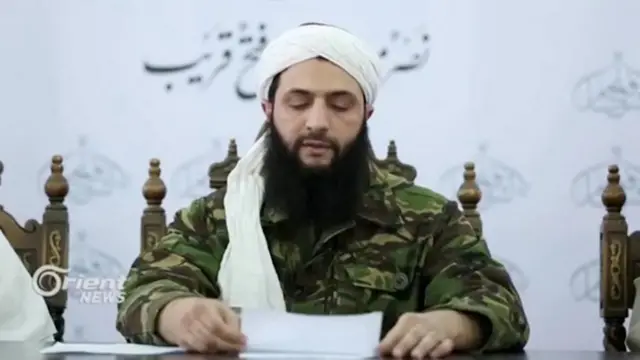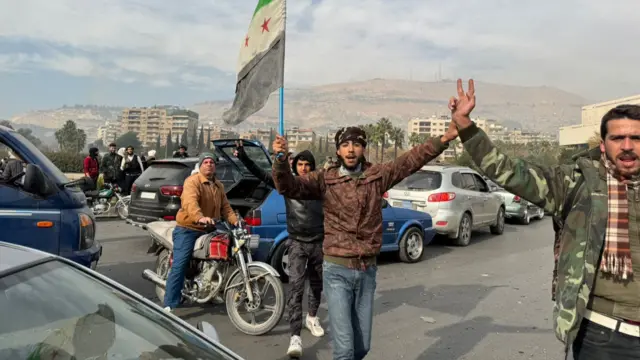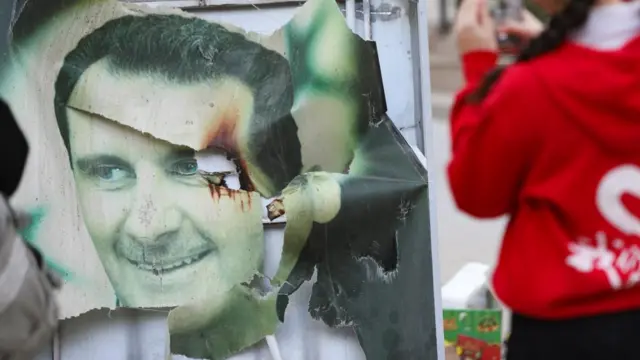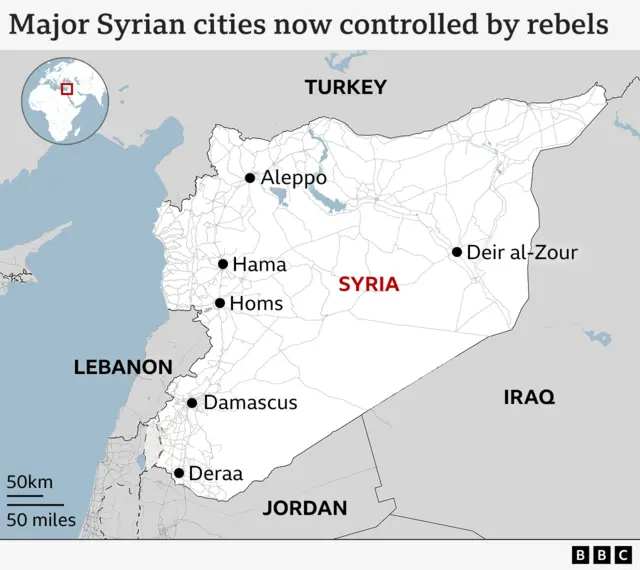HTS says looting not acceptable as some storm presidential palacepublished at 13:18 GMT 8 December 2024
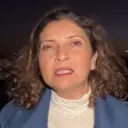 Lina Sinjab
Lina Sinjab
Reporting from Damascus
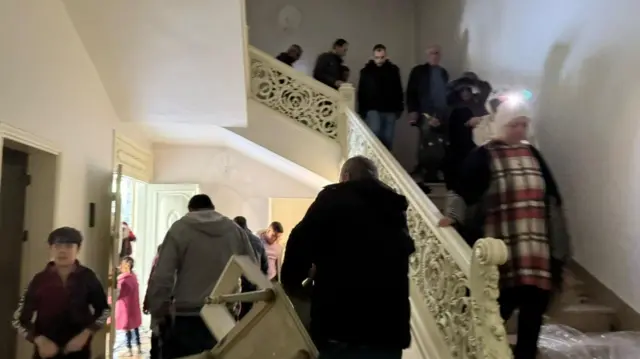
Inside Assad's residence
We are standing by the presidential palace - one of the palaces where Assad used to live.
Lots of people, many coming from rural areas, broke into the palace and they have almost emptied it and destroyed everything.
By the time we arrived, the place had been almost emptied except for some pieces of furniture.
Members of rebel group the HTS have arrived to control the situation - they have said this is not acceptable.
I've lived in Syria for 10 years and have never been into this street.
I can see people rushing into this place in revenge and also with lots of happiness that they've managed to break in.
The scenes are very chaotic inside. There has been looting in other government buildings but this is a different situation.
People are going in, posing for pictures while taking what they can. They are taking revenge for years of oppression and poverty because of Assad and his father.
Watch: BBC sees looting at Bashar al-Assad's Damascus residence

